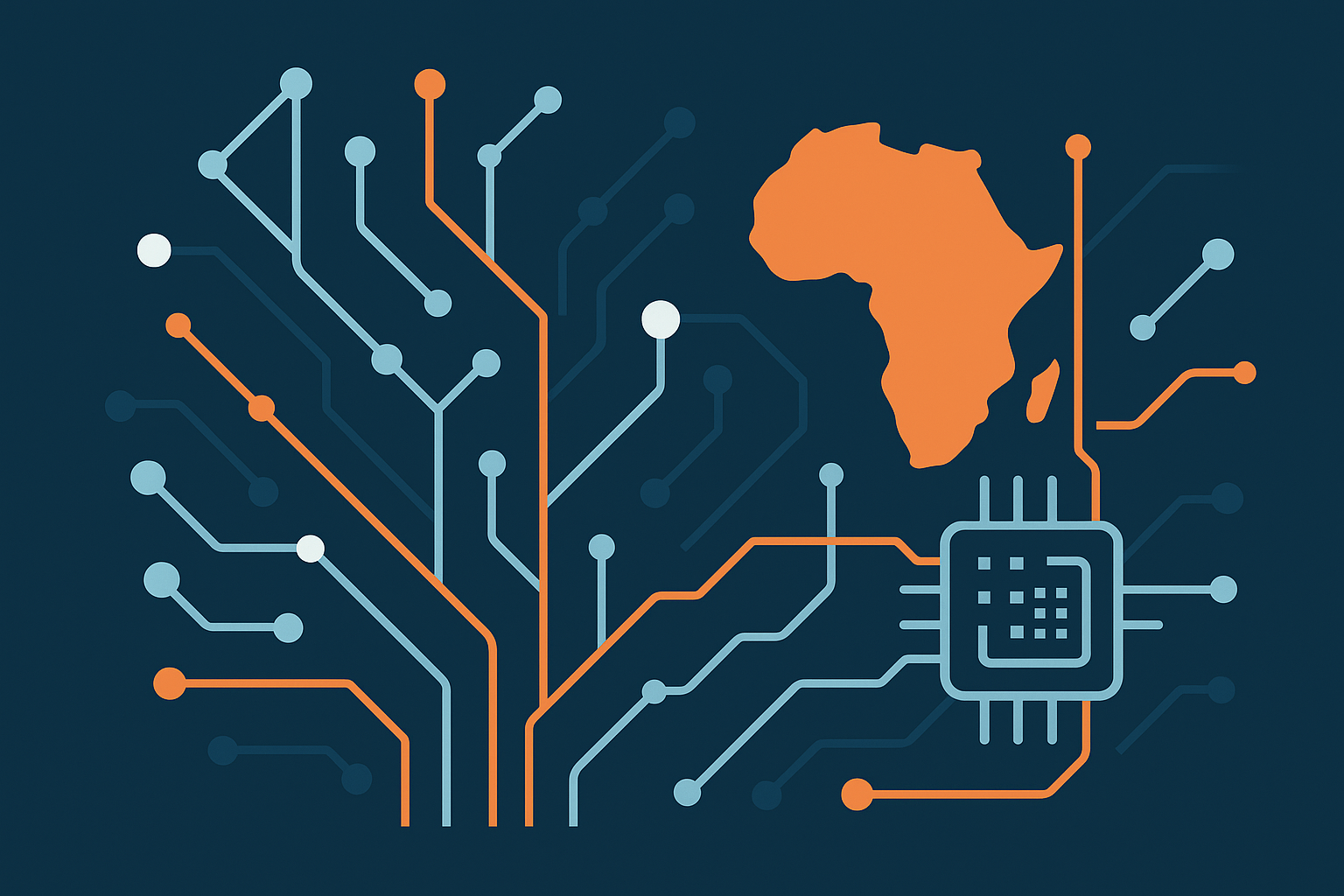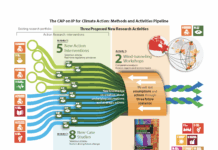Artificial intelligence (AI) has the potential to transform societies through new forms of knowledge creation, data use, and technological capability. Realising this potential requires legal and policy frameworks that support innovation rather than restrict it. The Catalysing AI’s Potential in Africa through Intellectual Property Innovation project investigates how intellectual property (IP) law and policy can be integrated into the governance of AI in ways that advance Africa’s development priorities.
This initiative forms part of the Open African Innovation Research (Open AIR) network and runs from 2025 to 2028. It addresses a pressing need for evidence-based approaches to the regulation of AI and IP that are inclusive, context-appropriate, and grounded in African realities.
Context and Rationale
Across Africa, continental and national AI strategies increasingly recognise the importance of IP. However, critical questions about data ownership, compensation for data creators, and rights over AI-generated works remain unresolved. There is a need for research that clarifies how IP systems can foster, rather than constrain, AI innovation and that situates Africa as a contributor to global governance in this field.
The project responds to this need by positioning IP as a central component of AI governance. It builds directly on Open AIR’s long-standing research on knowledge governance, innovation systems, and open development, applying these insights to the emerging policy space surrounding AI. The project’s central hypothesis is that inclusive, context-sensitive, and Afrocentric IP frameworks can catalyse innovation, promote fairness in data governance, and strengthen Africa’s participation in global AI debates.
Objectives and Themes
The project’s overall goal is to develop inclusive, sustainable, and evidence-based IP laws, policies, and business strategies that can advance AI innovation and governance across Africa. The specific objectives are to:
- Examine how IP and related regulatory frameworks influence the creation, diffusion, and commercialisation of AI technologies in African contexts.
- Build legal and policy models that reflect African values of equity, diversity, and shared prosperity in data and AI governance.
- Strengthen institutional and regulatory capacity in African countries to integrate AI innovation within development planning and knowledge governance systems.
The research is structured around three thematic areas:
- AI and IP law-making and application: mapping and analysing IP and AI laws, regulations, and practices at national, regional, and continental levels; examining questions of ownership, authorship, inventorship, and the use of data in training AI models.
- AI and IP in community contexts: addressing the implications of AI for community-based knowledge systems and local data governance, including indigenous and traditional knowledge; identifying culturally grounded and sovereign approaches to data sharing and protection.
- AI and IP in innovation and business models: assessing how IP frameworks affect the scaling of AI-driven innovation in sectors such as health, agriculture, education, and climate adaptation; supporting African IP offices, research institutions, and start-ups to engage with AI-related opportunities and challenges.
Research Design and Approach
The project employs elements of participatory action research methods that combine doctrinal, socio-legal, and comparative analyses. Its approach integrates field-based case studies, policy experimentation, and collaborative learning across diverse institutional and national contexts.
Research activities are organised into three interlinked components:
- Legal and policy analysis to examine how existing frameworks shape AI innovation and to identify entry points for reform.
- Participatory stakeholder engagement to co-create models of AI governance with policymakers, IP offices, innovators, and civil society.
- Strategic support for innovation scaling to translate research findings into practical tools and institutional reforms.
A knowledge–policy feedback loop ensures that findings from each stage of the project inform real-time policy and regulatory processes.
Activities and Outputs
Over its three-year duration, the project will deliver a wide range of academic, policy, and practical outputs, including:
- At least five major knowledge-synthesis resources such as policy handbooks, regulatory guides, practitioner manuals, baseline reports, and framework papers.
- Up to fifty AI innovation profiles documenting African AI initiatives and their IP implications.
- Fifteen deep-dive case studies exploring how law and policy shape AI innovation in selected sectors and regions.
- Direct collaboration with at least five national and two regional IP offices to integrate AI governance considerations into administrative practice.
The project will also produce policy briefs, peer-reviewed publications, and open-access resources in multiple languages to reach diverse audiences.
Collaboration and Leadership
The project is administered by the University of Pretoria, supported by York University the University of Ottawa as collaborating institutions. Supported by a CAD 750,000 grant from the International Development Research Centre (IDRC), the project is led by Professor Chijioke Okorie (University of Pretoria) and Professor Tesh Dagne (York University).
The project is also guided by the Open AIR Steering Committee and benefits from the expertise of senior members of the network, including Professor Caroline Ncube (University of Cape Town), Professor Jeremy de Beer (University of Ottawa). Other key researchers on the project include Professor Desmond Oriakhogba (University of the Western Cape), and Professor Bassem Awad (Western University).
Open AIR’s wide network of collaborators contributes to the project, including researchers, policymakers, and practitioners from government, industry, and civil society across Africa and Canada. This structure ensures that the research remains empirically grounded, policy-relevant, and responsive to the needs of innovation communities.
Cross-Cutting Principles
Consistent with Open AIR’s commitments, the project applies a gender-responsive and intersectional design. It promotes inclusive participation by women, youth, and under-represented innovators, and incorporates multilingual knowledge-sharing and public engagement to make its findings widely accessible.
Expected Outcomes and Significance
The project will strengthen Africa’s research and policy capacity at the intersection of AI, IP, and development. Its outputs will inform national legislation, support regulatory reforms, and contribute to continental frameworks such as the African Union’s AI strategy.
By advancing evidence-based approaches to AI governance, the project will help African countries build innovation ecosystems that are equitable, collaborative, and globally competitive. It will also contribute to shaping international policy debates by articulating African perspectives on the governance of AI, data, and intellectual property.
Through these efforts, Catalysing AI’s Potential in Africa through Intellectual Property Innovation will play a central role in ensuring that the benefits of AI are shared widely and that the knowledge economy of the future is more inclusive, sustainable, and just.







